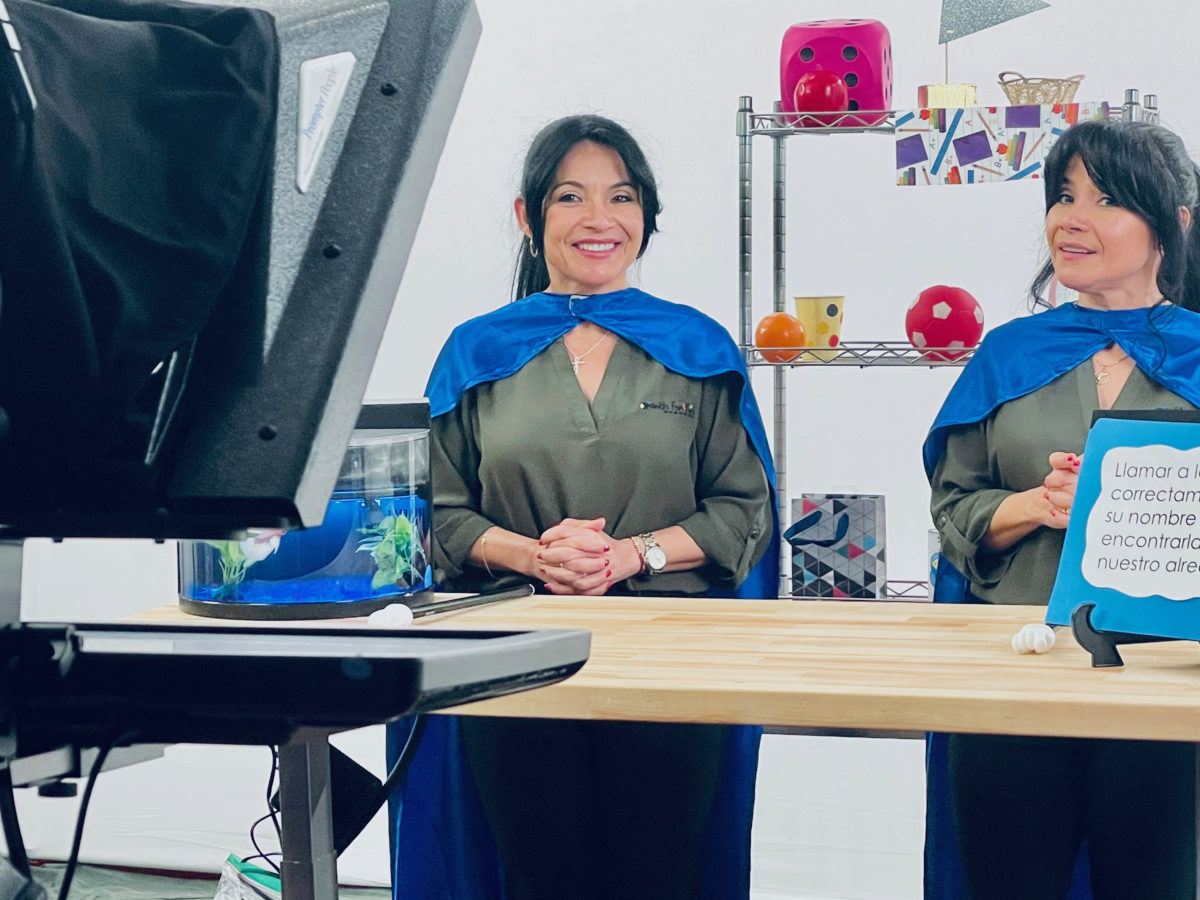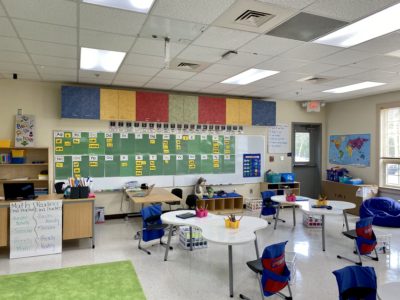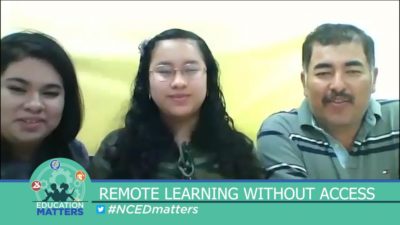

|
|
How can we provide North Carolina pre-K to fifth grade students with quality remote learning experiences without requiring access to the internet?
This is the question that brought stakeholders from the state Department of Public Instruction (DPI), PBS NC (formerly UNC-TV), and the Friday Institute for Educational Innovation (Friday Institute) to the table in summer 2020 in the midst of the COVID-19 pandemic.
The last months of the 2019-20 school year saw most students learning from home, rather than in school buildings, which brought the need for quality remote instruction to the fore. Examining this need from an equity lens led educational stakeholders across our state to call for instructional access solutions where internet connectivity would not be required.
This statewide call to action, along with funding received by DPI through the Coronavirus Aid, Relief, and Economic Security (CARES) Act, created the conditions for a multi-organizational response toward providing all pre-K through fifth grade students across North Carolina with access to quality math and literacy instruction via public access television. This response was the birth of Classroom Connection: short-form programming broadcasting weekly on PBS NC and available on-demand through DPI’s “At-Home Learning” YouTube playlist.
Twenty-four North Carolina educators designed and filmed 192 literacy- and mathematics-focused lessons that are aligned with the North Carolina Standard Course of Study. To make sure the lessons were camera-ready, the teachers engaged in a rigorous design process with feedback from DPI literacy and mathematics experts, UNC System Literacy Fellows, and the PBS NC and Friday Institute teams. Some of the teachers’ literacy lessons centered on books from Scholastic Inc., while others incorporate texts by North Carolina authors, such as Carole Boston Weatherford, Stacy McAnulty, Barbara O’Connor, and Allan Wolf. After filming, the PBS NC team brought the teachers’ instructional visions to life, adding post-production elements to highlight and reinforce key lesson concepts.
How can educators and families use these lessons with their pre-K to fifth grade students?
Educators and families across North Carolina have been accessing Classroom Connection programming since February 2021. Isaac Russell, a second grade teacher in Stanly County Schools, utilized the Classroom Connection programming as a resource for his students and himself.
“These lessons have helped me reflect on what is effective teaching and learning in a remote context,” he said.
Russell has incorporated approaches from the lessons with his own students.
“The Word Detective Toolkit is something that I now use with my student,” he said. “They have really responded well to it. Having something tangible to pull out and reference when they need to use a word-solving strategy has really helped them.”
In this way, these lessons provide high-quality instructional content for students while also serving as mentor lessons for teachers, highlighting key content and effective, evidence-based instructional practices.
As the 2020-21 school year comes to a close, many educators and caregivers are looking for resources to share with students for learning enrichment over the summer. The Classroom Connection programming and extension activities are easily accessible, free resources.
Here are three ways these materials can be used to review and extend literacy and mathematics learning this summer:
- Integrate viewing Classroom Connection programming into your weekly learning routine.
Math lessons air Mondays and Thursdays on PBS NC’s main channel from 8-10 am ET while literacy lessons are broadcast Tuesdays and Fridays during the same time slot. Classroom Connection lessons are also available for livestreaming during these times on Watch PBS NC Live Now. Pre-K through second grade lessons air from 8-8:30 am ET and third grade lessons air from 9-9:30 am ET. Additionally, past episodes, along with fourth and fifth grade lessons, are always available on DPI’s “At-Home Learning” YouTube playlist and at PBS NC. To further the Classroom Connection project’s goals of equity and accessibility, some lessons can be viewed in Spanish. Beginning May 17, Spanish SAP, an audio service for viewers with visual disabilities, will be available with lessons broadcast on PBS NC.
- Extend learning with Classroom Connection lessons through teacher-created activities.
All 192 Classroom Connection lessons have accompanying extension activities that are and will be available at DPI’s Open Educational Resources GoOpenNC and linked on PBS NC’s At-Home Learning Presents: Classroom Connection site. The extension activities are versatile — designed to be engaged before, during, and after learners watch the lessons. These activities rely on low-tech materials that are commonly available in a home learning environment, such as paper, writing utensils, glue sticks, personal items of different colors, and junk mail. They include step-by-step instructions to guide the adult facilitating the activity.
- Encourage students to apply key learnings from the lessons and extension activities.
Many of the Classroom Connection lessons invite students to reflect on and share their learning with friends and family. Educators and caregivers can support students in making these connections, extensions, and novel applications by creating the conditions for and drawing learners’ attention to how the knowledge and skills addressed in the lessons are applicable during everyday living. For example, one of the targeted literacy skills in the pre-K and kindergarten grade band is to sort objects into categories to gain a sense of the concepts the categories represent (NC Standard Course of Study L.K.5a). Students engage in this practice during Jennifer Sarmento’s lesson called “Butterfly” and its accompanying activities. A caregiver and learner could then work together to apply this practice by assembling a piece of furniture, sorting, counting, and categorizing the parts before beginning in order to make sure all necessary materials are present.
Classroom Connection provides students, caregivers, and educators with high-quality, multimodal math and literacy resources to amplify learning this summer and beyond. With equity in access as a guiding principle, these lessons and extension activities serve a critical role in supporting and engaging diverse learners across North Carolina.





